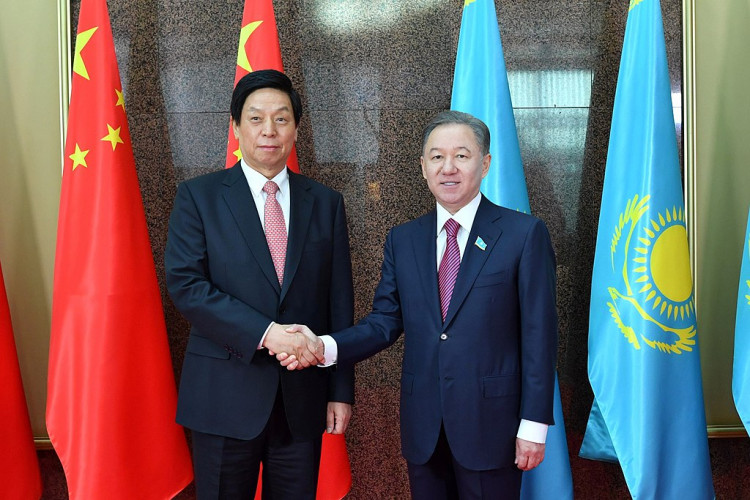China's top legislator, Li Zhanshu, will attend the eighth Eastern Economic Forum in Vladivostok this week, according to the official Xinhua news agency on Sunday (Sep 4), becoming the most senior Chinese official to visit Russia since the Ukraine war began.
From Wednesday through Sept. 17, Li, the head of the National People's Congress Standing Committee, will travel abroad on official business to South Korea, Russia, Mongolia, and Nepal. During his visit to Russia, he will participate in the four-day forum, which will start on Monday, it stated.
Li, who is presently ranked No. 3 in the Chinese Communist Party, will maintain his parliamentary seat through the month of March but will step down from his Party position at a Party meeting next month.
A "no limit" strategic alliance was proclaimed by Russian President Vladimir Putin and Chinese President Xi Jinping in February, just weeks before Russia invaded Ukraine in what Putin called "a special military operation."
The two nations reiterated that their new partnership was superior to any political or military alliance of the Cold War era in a joint statement.
The agreement served as the most comprehensive and forceful declaration yet of Russia's and China's will to cooperate with one another and work against the United States to create a new international system based on their respective views of democracy and human rights.
Although Putin announced a new gas agreement with China, the statement was drenched in ideological discourse, and it was unclear whether it was meant to be more of a declaration of general policy intent or whether it would immediately translate into an increase in tangible and practical cooperation.
Russia expressed its agreement with China's position that Taiwan is an integral part of China and its opposition to any kind of island independence. The AUKUS alliance between Australia, Britain, and the United States was also criticized by Moscow and Beijing, which said that it increased the risk of an arms race in the area.
China supported Russia's demand for security assurances from the West and joined Russia in calling for a halt to NATO expansion, two topics at the center of Moscow's dispute with the United States and its allies over Ukraine.
The two nations expressed worry about "the advancement of U.S. plans to develop global missile defense and deploy its elements in various regions of the world, combined with capacity building of high-precision non-nuclear weapons for disarming strikes and other strategic objectives".
They criticized efforts by "certain states" to promote conflict and impose their own ideals of democracy elsewhere, without specifically criticizing Washington.





